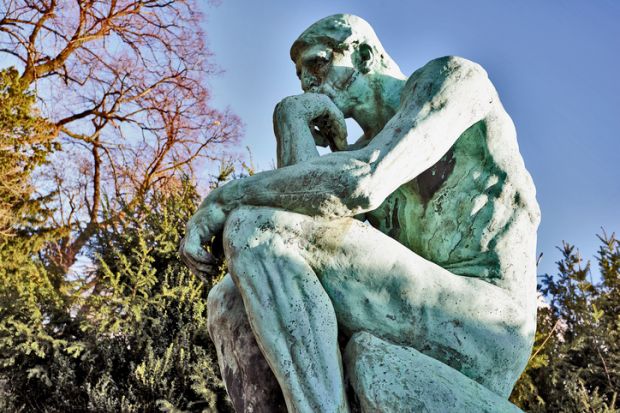Liberal arts universities in countries governed according to “antithetical” values must use education to contribute to societal development, a conference has heard.
Pascale Ghazaleh, associate professor of history at the American University in Cairo, said it was the “responsibility of the liberal arts, as a form of ethical engagement, to make students sharply aware of inequalities and brutalities we face in our daily lives”.
However, Dr Ghazaleh told Times Higher Education’s MENA Universities Summit, held online in partnership with NYU Abu Dhabi, that educators in the region “sometimes overlook the fact that the universities that we teach in are embedded in societies that in many ways negate, make redundant or dangerous the values we are trying to instil in our students”.
“It might not be the same elsewhere in the region, but in the case of Egypt and other countries, we do to some degree live in a police state, which is antithetical to the liberal arts education,” she said. “Our students come from an educational background where free thought and critical thinking is not encouraged, as do some of our faculty and administrators.”
For Dr Ghazaleh, it was important that liberal arts institutions help students to formulate questions and think critically, “but it is fine if they don’t want to push that any further…we can’t escape that we are part of these societies”.
Sari Nusseibeh, the former president of Al-Quds University, a Palestinian institution with campuses in Jerusalem, Abu Dis and al-Bireh, agreed that many universities were “right in the middle of a societal order that stands in antithesis to the purpose of education or liberal arts, call it what you will, and there is a constant conflict between the two”.
“The job of an educator is to help produce someone who could contribute to the better growth of society, not just in economic and financial terms, but in terms of values and integration, community aspirations,” he said.
Adil Najam, dean of the Frederick S. Pardee School of Global Studies at Boston University and former vice-chancellor of Lahore University of Management Sciences, said that a liberal arts education could help break down the barriers between disciplines and help students to ask critical questions.
“The question should be…have we as universities created an environment where young people learn not just how to question but how to think? I don’t want a world where people who run companies think I just have to ‘do’ profit and someone else thinks about ethics. That’s the potential and the need for this region,” he said.
For Fatma Abdullah, senior vice-provost of strategy and planning at NYU Abu Dhabi, the pandemic was drawing even more people to liberal arts. This was because the “hallmarks of a liberal education are creativity, collaboration, critical thinking and communication, and they are more important than they have ever been before”.
Register to continue
Why register?
- Registration is free and only takes a moment
- Once registered, you can read 3 articles a month
- Sign up for our newsletter
Subscribe
Or subscribe for unlimited access to:
- Unlimited access to news, views, insights & reviews
- Digital editions
- Digital access to THE’s university and college rankings analysis
Already registered or a current subscriber? Login








